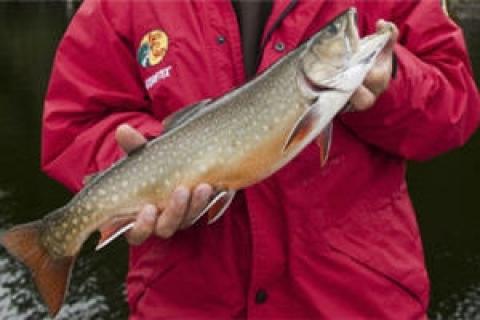
The spirit of adventure is a big reason I love fishing. Catching fish is a riot, no matter the species, but setting the hook while on a waterbody I’m fishing for the first time always increases the thrill. Putting the puzzle pieces together can take time on new fishing spots, which is why I recommend taking a long-view when prospecting.
 |
| Ian Krzyzanowski with proof a long-view pays off when fishing new water. |
Break It Down
Except on small systems, trying to cover an entire lake in a day is a big undertaking. Tournament anglers must regularly sift through vast expanses of water in short timeframes, but recreational anglers have more flexibility. An effective and systematic way to cover new water is dividing the lake up into quadrants, and committing to thoroughly exploring one section per outing. This approach keeps me focused on learning the intricacies of large areas and encourages systematic and thorough fishing. Give it a try.
Don’t Write Off a System Too Soon
A bad day on the water isn’t reason to discount a lake. We all have tough fishes on our favorite fishing spots, so it’s important to give a system more than one chance to prove itself as a fish factory. Investigate it multiple times and during different seasons. Even if the lake turns out to be a sub-par spot, the time on the water will improve your angling skills. It’s all learning.
Write It Down and Take Pictures
Keeping a log book of your fishing exploits is good practice. This is particularly handy when faced with the challenge of trying to find fish on new water. Take pictures to enhance your notes, such as sonar screen displays, water temperature, shoreline references, and top baits.
Be Patient
There’s much to be said about being conservative and not trying to fish several new systems all at once. I tend to tackle one or two a season. Sometimes these lakes are the same for open-water and ice fishing, other years they’re different. A strategy I started over a decade ago is renting a cottage for a week on a new lake each year. This allows for consecutive days on the same body of water and plenty of time for prospecting. I’ve discovered a few crackerjack lakes using this approach.
Consider the long-view when exploring lakes, rivers, and reservoirs. The approach provides short-term rewards, but the paybacks are even better in the long run.
- 3013 views

